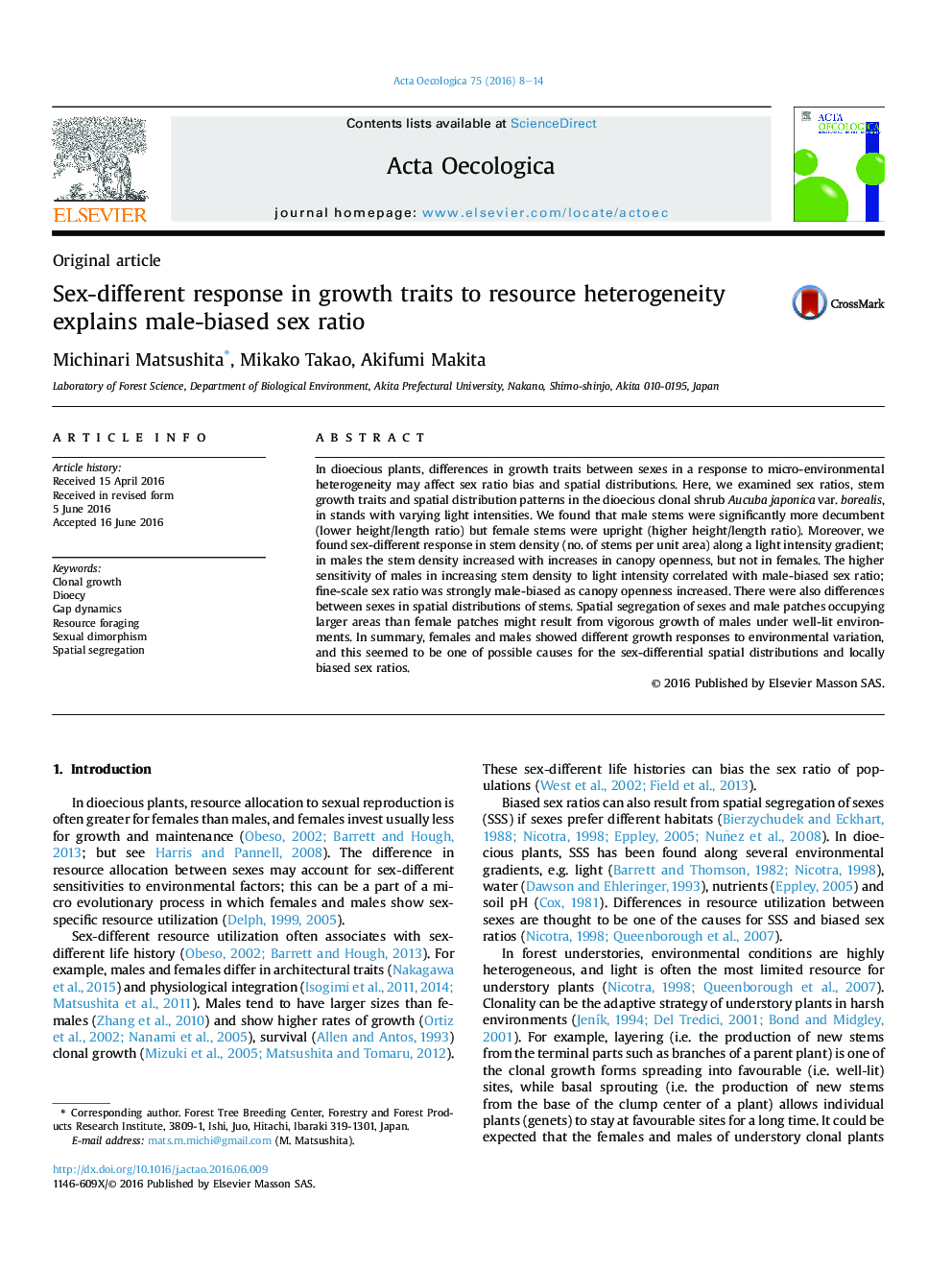| Article ID | Journal | Published Year | Pages | File Type |
|---|---|---|---|---|
| 6297323 | Acta Oecologica | 2016 | 7 Pages |
Abstract
In dioecious plants, differences in growth traits between sexes in a response to micro-environmental heterogeneity may affect sex ratio bias and spatial distributions. Here, we examined sex ratios, stem growth traits and spatial distribution patterns in the dioecious clonal shrub Aucuba japonica var. borealis, in stands with varying light intensities. We found that male stems were significantly more decumbent (lower height/length ratio) but female stems were upright (higher height/length ratio). Moreover, we found sex-different response in stem density (no. of stems per unit area) along a light intensity gradient; in males the stem density increased with increases in canopy openness, but not in females. The higher sensitivity of males in increasing stem density to light intensity correlated with male-biased sex ratio; fine-scale sex ratio was strongly male-biased as canopy openness increased. There were also differences between sexes in spatial distributions of stems. Spatial segregation of sexes and male patches occupying larger areas than female patches might result from vigorous growth of males under well-lit environments. In summary, females and males showed different growth responses to environmental variation, and this seemed to be one of possible causes for the sex-differential spatial distributions and locally biased sex ratios.
Related Topics
Life Sciences
Agricultural and Biological Sciences
Ecology, Evolution, Behavior and Systematics
Authors
Michinari Matsushita, Mikako Takao, Akifumi Makita,
